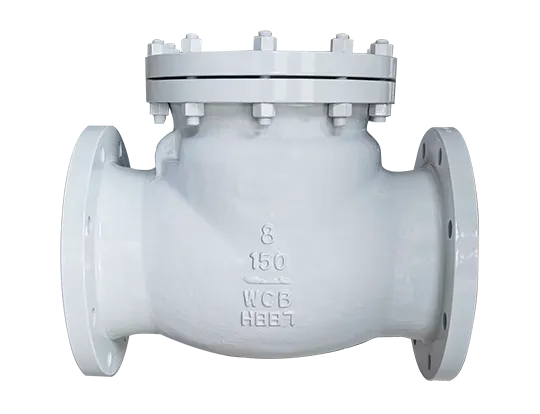Understanding Swing Check Valves: Essential Features and Applications
2024-09-13
Swing check valves are a fundamental component in many industrial systems, playing a crucial role in controlling the flow of fluids. These valves are designed to prevent the backflow of fluid in pipelines, ensuring a smooth and unidirectional flow. Whether you're managing water, gas, or any other liquid, swing check valves offer an efficient and cost-effective solution to prevent reverse flow that could cause damage to your system.
What is a Swing Check Valve?
A swing check valve is a type of non-return valve that relies on a disc (or "swing") that swings on a hinge to open or close. When fluid flows in the correct direction, the pressure pushes the disc open, allowing the fluid to pass. If the fluid starts to reverse, the disc swings back, shutting off the flow. This simple yet effective mechanism makes swing check valves highly reliable for a variety of applications.
Key Features of Swing Check Valves
1. Simple Design: The construction of a swing check valve is straightforward, involving a hinged disc that moves freely with the flow of fluid. This simplicity reduces the risk of mechanical failure and makes maintenance relatively easy.
2. Low Pressure Drop: Because the valve opens fully when fluid flows in the intended direction, swing check valves typically exhibit a low pressure drop compared to other types of check valves. This feature is especially important in systems that require efficient fluid dynamics.
3. Backflow Prevention: The primary function of a swing check valve is to prevent reverse flow, which can occur due to system shutdowns, pump failures, or sudden changes in pressure. Preventing backflow protects pumps, compressors, and other sensitive equipment from damage.
4. Wide Range of Materials: Swing check valves are available in various materials such as cast iron, stainless steel, and bronze, making them suitable for different environments, including high-temperature and corrosive applications.
5. Versatility: These valves come in various sizes, pressure ratings, and configurations, making them suitable for industries such as water treatment, oil and gas, chemical processing, and HVAC systems.
Applications of Swing Check Valves
1. Water and Wastewater Management: In water treatment facilities, swing check valves ensure that water flows in one direction, preventing contamination from backflow. They're commonly used in pumping stations to maintain flow integrity.
2. Oil and Gas Industry: Swing check valves are ideal for oil and gas pipelines, where maintaining the direction of flow is critical for preventing accidents and equipment damage. They can handle high-pressure environments and corrosive fluids.
3. HVAC Systems: In heating, ventilation, and air conditioning systems, swing check valves help control fluid flow in various pipelines, maintaining system efficiency and preventing fluid reversal that could cause malfunctions.
4. Chemical Processing Plants: Chemical industries often require robust check valves to handle aggressive fluids. Swing check valves made from corrosion-resistant materials ensure long-lasting performance in these demanding conditions.
Maintenance Tips for Swing Check Valves
Though swing check valves are relatively low-maintenance, regular inspection is essential to ensure optimal performance. Here are some tips:
- Routine Inspection: Check the valve for signs of wear or damage, especially the disc and hinge, as these components are most prone to wear over time.
- Cleaning: Keep the valve clean and free from debris that could affect its operation, especially in systems with dirty or viscous fluids.
- Lubrication: Regularly lubricate the hinge mechanism to ensure smooth operation, particularly in high-use systems.
- Replace Worn Parts: If the disc or hinge becomes damaged or worn, replace them promptly to prevent valve failure.
Conclusion
Swing check valves are an essential component in numerous industrial applications, offering reliable backflow prevention and ensuring the smooth operation of fluid systems. Their simple design, durability, and versatility make them a popular choice for industries ranging from water management to oil and gas. By selecting the right swing check valve and maintaining it properly, you can enhance the efficiency and safety of your fluid systems.



